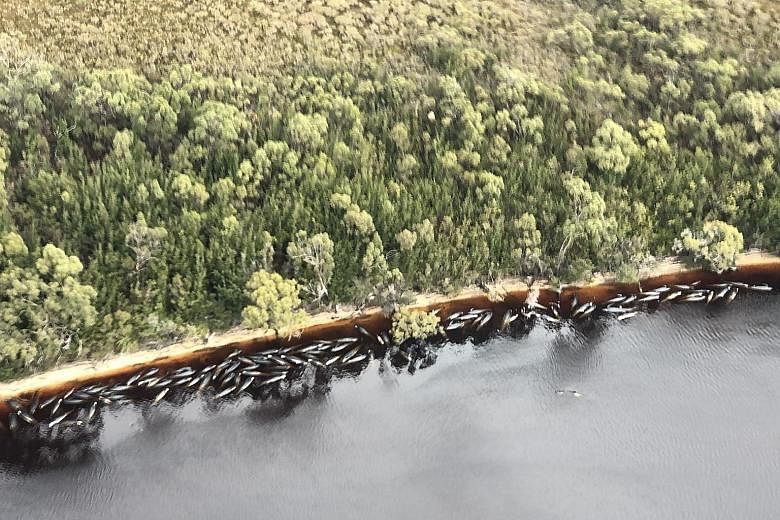SYDNEY • Australian officials focused on the grim task of disposing almost 400 whale carcasses yesterday, while attempts to rescue the few remaining survivors of one of the world's worst mass strandings were expected to be extended for another day.
Rescuers had managed to free almost 90 of the long-finned pilot whales beached off the country's southern coast by late yesterday.
The majority of those freed had reached deeper water, officials said, but four had to be euthanised and others might return when the tide turns.
The clock was ticking for a small group of whales still floundering in shallow water on a wide sandbank, four days after the 470-strong pod was first spotted off the north-west coast of Tasmania.
"There is a likelihood that we will be continuing the rescue efforts tomorrow," said Mr Nic Deka, the incident controller for the state government's Parks and Wildlife Service. "While we have live animals that have a chance and we have the crew to shift them, we will give it a go," he told a media briefing.
After a positive veterinary assessment, a rescue attempt would continue today for a mother and calf that appeared in footage posted by local media on Twitter. The video showed the calf swimming among rescuers as they tried to save its mother.
Alongside these measures, the authorities were also developing a plan to dispose of around 380 dead whales at sea. Options included loading the carcasses onto a barge or gathering them into a group to tow, Mr Deka said, adding that a barge with a crane attached was due to arrive on Monday.
Euthanising those animals too exhausted to swim to safety was another daunting but necessary task, experts said.
Dr Mike Double, a zoologist that leads the Australian Marine Mammal Centre, told Reuters: "For large whales, very sadly, it could take weeks for them to die, and they get blistered in the sun, so you would be thinking about an ethical and humane thing to do."
REUTERS

